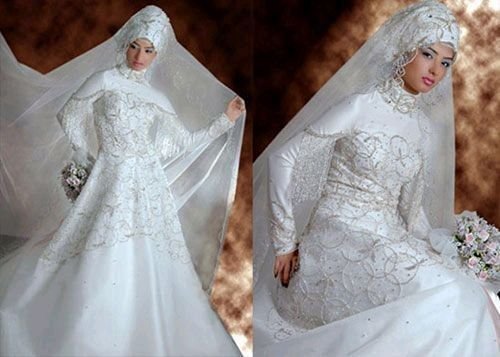Muslim marriages can be conducted in different ways, depending on the culture in which they are arranged. The following information refers, in the most part, to the Asian world. Here, Muslim marriages are generally arranged by the parents, with the bride and groom themselves having the final say about who they will wed. The actual proposal comes from the woman, who contacts the man through an intermediary -- normally a male relative.
Strictly speaking, Muslim women cannot marry outside their faith. Muslim men can, in principle, marry non-Muslims, as long as they are Christian or Jewish and their children are raised as Muslims. Alternatively, it is possible for a woman to convert to the Muslim faith by performing the Shadada, a simple ceremony in which the convert accepts Allah and Mohammed.
After accepting her offer of marriage, the groom must give the bride a Mahar (gift). Usually in the form of money or gold, it is intended as a dowry for her to use as she wishes. The engagement period lasts three months, and if the couple aren’t married by the end of this period, the engagement contract needs to be renewed. During this time, the bride can only be in the same room as her intended if her father or brother is present and she is covered.

What happens at a Muslim wedding?
The ceremony is generally a well-attended affair, though to make it official, only two male witnesses are required. The wedding always retains a spirit of simplicity, in accordance with the tenets of Islam.
Planning your Muslim wedding
Setting the date
- The Muslim calendar works on a lunar cycle, so there are no fixed days for weddings. However, it is forbidden to marry on the two days of Eid, which occur after the feast of Ramadan, and the Day of Pilgrimage. It is also impossible to marry on the Day of Ashura, which falls on either the 9th or 10th day of the Islamic first month (Muharran).
- You can marry at any time of the day.
- There is no fixed notice period required before marriage, as, in Islam, there’s no registrar system.







